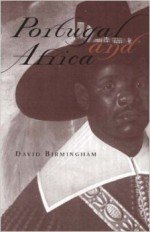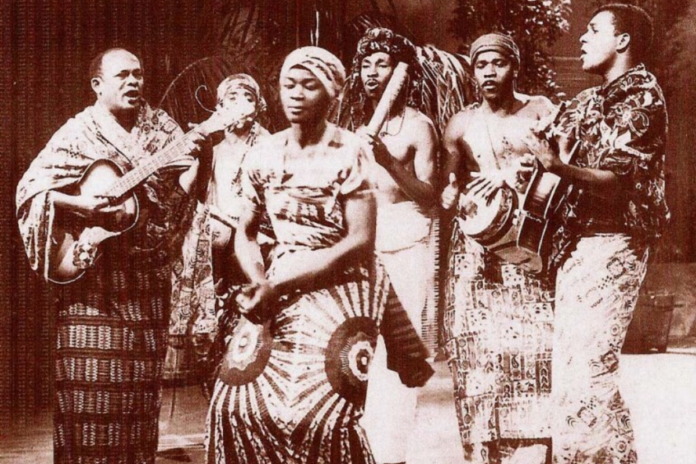Lara Pawson, author of “In the Name of the People,” chooses five essential reads to introduce newcomers to Angolan politics, culture, and history.
Since my initial venture into working in Angola in 1998, I’ve grown accustomed to encountering blank stares when I bring up the country in conversation. While some may have heard snippets about the wars spanning from 1961 to 2002 or might raise an eyebrow at the mention of its abundant oil resources, their knowledge typically doesn’t extend much further.
Occasionally, Portugal may spark a memory. As someone deeply fascinated by Angola, I find this situation both frustrating and intriguing. It presents an irresistible challenge: to convince those unfamiliar with Angola that delving deeper into its complexities is worthwhile.
While contemplating which books might intrigue those unfamiliar with Angola, I reached out to various Angolan acquaintances and experts for their top five book recommendations. One seasoned Angolan journalist suggested overlooking books entirely and instead focusing on Facebook, where thousands of Angolans exchange daily information, opinions, photographs, and gossip about their country.
However, this platform may not be accessible to non-Portuguese speakers or those lacking Angolan Facebook connections. Other suggestions mainly consisted of excellent books available only in Portuguese. Thus, I’ve selected the following five English-language books, each offering unique insights into the country. These books have enriched my understanding of Angola in diverse ways, inspiring me to pen my own work, “In the Name of the People: Angola’s Forgotten Massacre.”
Also Read: Black British Artists: Celebrating Nelsons Ships
Portugal and Africa by David Birmingham (Ohio University, 1999)
 The author of this remarkable collection of essays is a British historian who commenced writing about Africa and Portugal over six decades ago. Starting in 1488 with the voyage of the Portuguese mariner Bartolomeu Dias to the Cape of Good Hope, Birmingham guides us through the subsequent five centuries with his characteristic wit and intelligence.
The author of this remarkable collection of essays is a British historian who commenced writing about Africa and Portugal over six decades ago. Starting in 1488 with the voyage of the Portuguese mariner Bartolomeu Dias to the Cape of Good Hope, Birmingham guides us through the subsequent five centuries with his characteristic wit and intelligence.
From the early colonial encounters in Angola to the Atlantic slave trade, the establishment of the church, and the cultivation of coffee and cocoa plantations, to Portugal’s confrontation with Cecil Rhodes in 1890, and culminating in the establishment of the New State under Portugal’s fascist leader, António de Oliveira Salazar, and eventually to Angolan independence. The final chapter, “Black and White in Angolan Fiction,” offers a vibrant exploration of the works of two significant novelists: António de Assis Junior (1887-1960), one of the country’s few published black writers, and the remarkable Pepetela (1941- ), a white Angolan whose novels seem to consistently excel.
Creole by José Eduardo Agualusa (Arcadia Books, 2002)
 In the concluding pages of this exquisitely crafted novel, one of the two narrators, Ana Olímpia, a black Angolan woman, reflects on a profound linguistic nuance: in her language, the word for ‘the sea’ also signifies ‘death’. Thus, she elucidates that for slaves transported across the Atlantic from Angola to Brazil, the journey symbolized a passage through death. However, if they survived and reached the other shore, it represented a rebirth.
In the concluding pages of this exquisitely crafted novel, one of the two narrators, Ana Olímpia, a black Angolan woman, reflects on a profound linguistic nuance: in her language, the word for ‘the sea’ also signifies ‘death’. Thus, she elucidates that for slaves transported across the Atlantic from Angola to Brazil, the journey symbolized a passage through death. However, if they survived and reached the other shore, it represented a rebirth.
This unexpected twist of optimism serves as the thought-provoking conclusion to a narrative delving into the life and perspectives of the Portuguese aristocrat Fradique Mendes as he traverses between Western Europe, Angola, and Brazil during the decline of the Portuguese Empire. Amidst witnessing the demise of the slave trade, he falls in love with Ana Olímpia, a former slave renowned for her beauty and intelligence. Born in 1960, Agualusa stands as one of Angola’s most accomplished novelists, alongside the esteemed Pepetela, enjoying international recognition, partly attributable to Daniel Hahn’s exceptional translations.
Good Morning Comrades by Ondjaki (Biblioasis, 2008)
 This novella offers a child’s perspective on daily life in Luanda during the Cold War, set in the 1980s and reflecting Ondjaki’s own upbringing. The narrator, Ndalu, shares the author’s real name, Ndalu de Almeida. Readers follow Ndalu as he navigates his home, engaging in conversations with the elderly cook, Comrade António, and accompanies him to school, where Cuban teachers advocate for revolution while Ndalu and his friends worry about the looming threat of war.
This novella offers a child’s perspective on daily life in Luanda during the Cold War, set in the 1980s and reflecting Ondjaki’s own upbringing. The narrator, Ndalu, shares the author’s real name, Ndalu de Almeida. Readers follow Ndalu as he navigates his home, engaging in conversations with the elderly cook, Comrade António, and accompanies him to school, where Cuban teachers advocate for revolution while Ndalu and his friends worry about the looming threat of war.
Beneath the whimsical surface of the text lie deeply unsettling issues—the “deepest wounds” of Angola, revealing a harsh and relentless political dictatorship. Ondjaki humorously critiques the absurdities of the highly censored state-owned media and even takes jabs at the president, portraying him speeding along newly paved streets in an armed convoy for his own pleasure. Born in 1977, Ondjaki carries less ideological and party loyalty burdens than older Angolan writers, and he captures the essence of Luandan life with a keen ear for banter, gossip, and everyday chatter.
Intonations: A Social History of Music and Nation in Luanda, Angola, from 145 to Recent Times by Marissa J. Moorman (Ohio University Press, 2008)
 If you’re hesitant about reading, treat yourself: purchase a copy of this beautifully crafted and captivating book and enjoy the fantastic CD included in the plastic sleeve at the back! You’ll be eager to delve deeper after swaying and shimmying to the tunes of great artists like Urbano de Castro, N’Gola Ritmos, and Paulo Flores.
If you’re hesitant about reading, treat yourself: purchase a copy of this beautifully crafted and captivating book and enjoy the fantastic CD included in the plastic sleeve at the back! You’ll be eager to delve deeper after swaying and shimmying to the tunes of great artists like Urbano de Castro, N’Gola Ritmos, and Paulo Flores.
Moorman goes beyond providing translations—often in two languages—of her selected tracks; she shares her extensive research, revealing how Angolans in Luanda’s shanty towns utilized music to resist colonial rule. Her book is brimming with insights gleaned from national radio archives and numerous interviews with the country’s leading musicians. As an academic historian, Moorman’s writing is clear and engaging, resulting in a profoundly compelling piece of work. I affectionately refer to “Intonations” as my go-to guide.
Angola From Afro-Stalinism to Petro-Diamond Capitalism by Tony Hodges (James Currey, and Bloomington, Indiana University Press, 2001, in association with The Fridtjof Nansen Institute & The International African Institute)
 While this book may be somewhat outdated, it still offers a comprehensive, clear, and concise overview for those seeking to understand Angola’s economy since the 1970s. Hodges excels in explaining how, in the early 1990s, the ruling party shifted from state socialism to unbridled capitalism, leading to a small elite accumulating vast wealth from diamond and oil resources. Published over a decade ago, it does not cover China’s significant role in Angola’s economy today nor delve into Angola’s support for Portugal.
While this book may be somewhat outdated, it still offers a comprehensive, clear, and concise overview for those seeking to understand Angola’s economy since the 1970s. Hodges excels in explaining how, in the early 1990s, the ruling party shifted from state socialism to unbridled capitalism, leading to a small elite accumulating vast wealth from diamond and oil resources. Published over a decade ago, it does not cover China’s significant role in Angola’s economy today nor delve into Angola’s support for Portugal.
For the latter, consider “Os Donos Angolanos de Portugal,” published in Portugal earlier this year but currently only available in Portuguese. After familiarizing yourself with Hodges’ book, keep an eye out for “Magnificent and Beggar Land: Angola Since the Civil War” by Ricardo Soares de Oliveira, scheduled for publication later this year. I’ve been reliably informed that Oliveira leaves no stone unturned. Additionally, I strongly recommend learning Portuguese for a deeper understanding.

Lara Pawson, the author of “In the Name of the People: Angola’s Forgotten Massacre,” served as a reporter for the BBC World Service from 1998 to 2007, covering stories in Mali, Ivory Coast, São Tomé, and Príncipe. From 1998 to 2000, she was stationed as a BBC correspondent in Angola, where she reported on the civil war. Since then, she has revisited Angola multiple times. Presently, Pawson works as a freelance journalist and resides in London.


